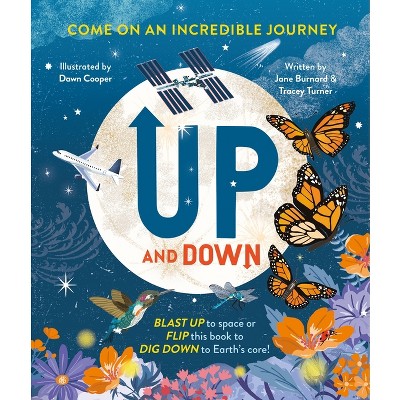Sponsored

Carceral Worlds - by Hanneke Stuit & Jennifer Turner & Julienne Weegels (Hardcover)
In Stock
Sponsored
About this item
Highlights
- We live a world in which the number of prisons is growing and experiences of incarceration are increasingly widespread.
- About the Author: Hanneke Stuit is Assistant Professor of Literary and Cultural Analysis and Postdoctoral Researcher at the University of Amsterdam, the Netherlands.
- 288 Pages
- Political Science, Comparative Politics
Description
About the Book
A timely interdisciplinary reflection on the practices, performances, imaginaries, and experiences of confinement and carcerality in our globalized present - featuring global case studies.Book Synopsis
We live a world in which the number of prisons is growing and experiences of incarceration are increasingly widespread. Carceral Worlds offers a necessary and timely contribution to understanding these carceral realities of the globalized present. The book asks how the carceral has become so central in life, how it manifests in different geographical locations and, finally, what the likely consequences are of living in such a carceral world.
Carceral Worlds focuses on carceral practices, experiences and imaginaries that reach far beyond traditional spaces of confinement. It shows the lasting effects of colonial carceral heritage, the influence of prison systems on city management, and the entrapping nature of digital infrastructures. It also discusses new urbanized forms of migrant detention, the relation between prisons and homelessness, the use of carceral metaphors in the everyday, and the carceral implications of the uneven distribution of climate risk across the globe. The volume brings together work from scholars across the world and from a variety of disciplines in the social sciences and humanities, offering a fresh approach to the carceral as a central vector in modern life.Review Quotes
"This diverse, multifaceted collection affirms the richness of contemporary carceral studies bringing important insights and provocations from social science and the humanities to bear on a range of literal and literary carceral worlds and imaginaries. Significantly, running throughout is an insistent current of abolitionist thought that has the potential to enable and energize the necessary ongoing pushback against carceral power. The collection is forceful but pragmatic, ambitious but attritional and makes a timely contribution to our collective understandings of the detrimental, deliberate dynamics associated with the desire to secure and the will to confine." --Andrew M. Jefferson, DIGNITY - Danish Institute Against Torture
"'Carceral Worlds', brings together a diverse and fascinating collection of essays and reflections that challenge, inform, and advance the theorization of the carceral and the varied legacies with which it is articulated." --Dominique Moran, University of Birmingham "Carceral Worlds investigates how the concept of the carceral and its bordering holds and are held. Attentive to assaults on geographic liberatory practices and the resonances of carceral states beyond the prison, nowhere in this conceptual work do the authors forget on whose bodies the hold lands. Collectively, the authors offer a profound meditation on how the carceral bleeds its logics across tight epistemic and institutional walls, how the punitive polices a global ordering of spatial distinctions and temporal inequities, and ultimately, how the carceral is a predatory form of life that sustains racial capitalism." --Kathryn Yusoff, Queen Mary University of LondonAbout the Author
Hanneke Stuit is Assistant Professor of Literary and Cultural Analysis and Postdoctoral Researcher at the University of Amsterdam, the Netherlands. She is author of Ubuntu Strategies: Constructing Spaces of Belonging in Contemporary South African Culture (2016) and co-editor of Peripheral Visions in the Globalizing Present: Spaces, Mobilities, Aesthetics (2016).
Jennifer Turner is the leader of the Crime and Carcerality Research Group at the Carl von Ossietzky Universität Oldenburg, Germany. She is author of The Prison Boundary: Between Society and Carceral Space (2016) and co-editor of Carceral Mobilities: Interrogating Movement in Incarceration (2017) and The Prison Cell: Embodied and Everyday Spaces of Incarceration (2020). Julienne Weegels is Assistant Professor of Latin American Studies at the University of Amsterdam, the Netherlands. She is co-organizer of the Global Prisons Research Network and convenor of the Anthropology of Confinement network.










